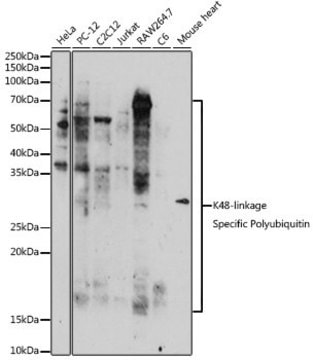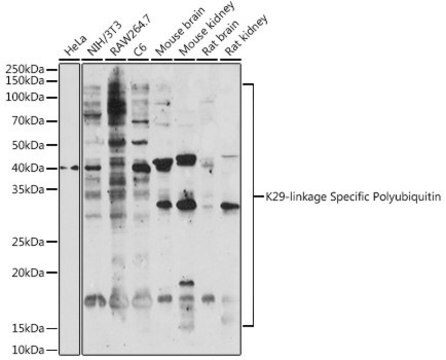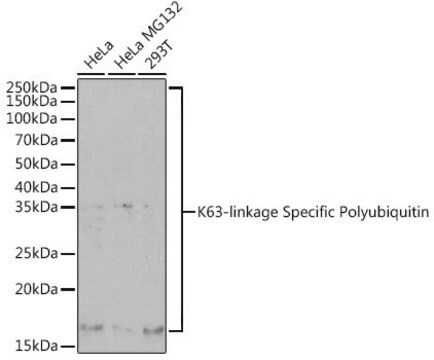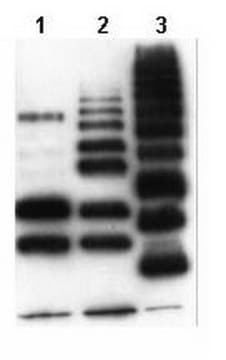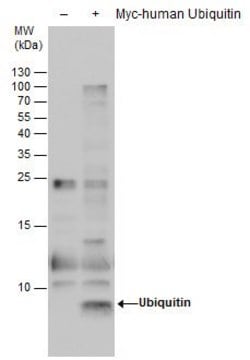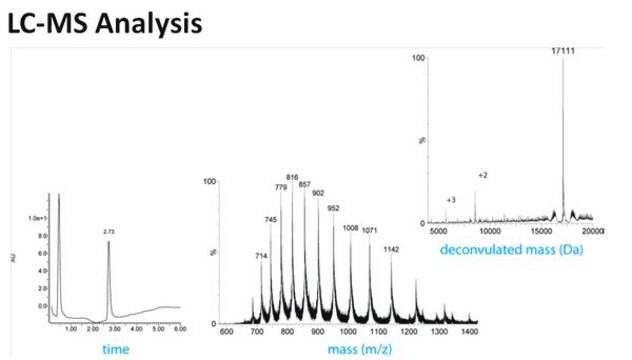05-1313
Anti-Ubiquitin Antibody, Lys63-Specific, clone HWA4C4
clone HWA4C4, from mouse
Synonym(s):
ubiquitin C, polyubiquitin B, ubiquitin B
About This Item
Recommended Products
biological source
mouse
Quality Level
antibody form
purified immunoglobulin
antibody product type
primary antibodies
clone
HWA4C4, monoclonal
species reactivity
vertebrates, human
technique(s)
ELISA: suitable
immunocytochemistry: suitable
immunohistochemistry: suitable
western blot: suitable
isotype
IgG2a
NCBI accession no.
UniProt accession no.
shipped in
wet ice
target post-translational modification
unmodified
Gene Information
human ... UBAP2(55833)
General description
Specificity
Immunogen
Application
Signaling
Ubiquitin & Ubiquitin Metabolism
A 2 μg/mL dilution of this lot detected Lys-63 ubiquitin chains by Western blotting.
Additional Research Applications
Immunocytochemistry:
This antibody has been reported by an outside laboratory to be suitable for cytochemistry using HEK293T cells transiently transfected with either wild-type ubiquitin or [K63R] ubiquitin.
Immunohistochemistry:
This antibody has been reported by an outside laboratory to be suitable for histochemistry using human brain tissue (hippocampus) from an Alzheimer′s patient.
ELISA:
This antibody has been reported by an outside laboratory to be suitable for ELISA.
Quality
A 2 μg/mL dilution of this lot detected Lys-63 ubiquitin chains by Western blotting.
Target description
Physical form
Storage and Stability
For maximum recovery of product, centrifuge the vial prior to removing the cap.
Analysis Note
Lys63 polyubiquitin chains.
Disclaimer
Not finding the right product?
Try our Product Selector Tool.
Storage Class Code
12 - Non Combustible Liquids
WGK
WGK 1
Flash Point(F)
Not applicable
Flash Point(C)
Not applicable
Certificates of Analysis (COA)
Search for Certificates of Analysis (COA) by entering the products Lot/Batch Number. Lot and Batch Numbers can be found on a product’s label following the words ‘Lot’ or ‘Batch’.
Already Own This Product?
Find documentation for the products that you have recently purchased in the Document Library.
Our team of scientists has experience in all areas of research including Life Science, Material Science, Chemical Synthesis, Chromatography, Analytical and many others.
Contact Technical Service

